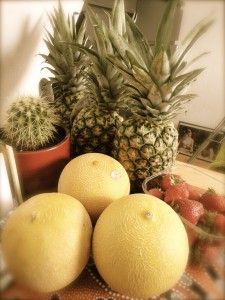As organic products were taking over the supermarket shelves, sustainability is taking over business and society. Sustainable business, sustainable food, sustainable pee. We want it all, to improve the world.
And that, dear reader, is not possible. Sustainability does not exist. Sustainability is not a solution to all problems. You’re basically talking about giving back as much as you take. But where a vegetarian prevents animals from a lot of suffering, he inflicts a waste stream on the environment that we can no longer get rid of at the factory farming companies. The housewife, who buys tomatoes from the farm in the next village, does not realize that she would save more energy by buying tomatoes that are brought in from Spain. Of course she doesn’t now, nobody told her this. Growing tomatoes in a greenhouse costs more energy than driving a truck from Madrid to Amsterdam. Local products are sustainable, is what they tell you everywhere. Not always, apparently.
 Sustainability is not easy: in fact, it’s damn hard. You shouldn’t wish to pursue sustainability: you need to live sustainable yourself. Reach a sustainable world by focusing on what you care about and figuring out where your priorities lie. In that way we can actually reach something, slowly, together. There is no ‘road to sustainability’, but every contribution you make, is a step in the right direction.
Sustainability is not easy: in fact, it’s damn hard. You shouldn’t wish to pursue sustainability: you need to live sustainable yourself. Reach a sustainable world by focusing on what you care about and figuring out where your priorities lie. In that way we can actually reach something, slowly, together. There is no ‘road to sustainability’, but every contribution you make, is a step in the right direction.
There immediately lies the biggest problem. Because there are so many different elements and parties involved in so-called ‘sustainable living’, there is lots of information. Environment, animal welfare, health, energy, everything has its own sustainable strategy. Who has time for that nowadays? It’s much easier to throw it all in one word, and put that definition out on the market. Because sustainability is nothing more than that: a marketing term. It is a fashion item and, like with most fashion items, people don’t want to put too much effort in it and certainly don’t want to think about it too much. Convenience prevails. People want to eat organic, as long as you can easily get it at the supermarket. Everyone wants to be sustainable, but we’d like it if that doesn’t require any changes in our daily life.
With this growing need for convenience, speed and the excuse that we’re all “too busy”, combined with the erroneous impression that is created by the use of the word ‘sustainability’, we continue to fail. And failing doesn’t encourage anyone to persevere. If we continue to believe in sustainability as it is currently presented, we will never reach our goal – as we strive for an illusion. In my opinion, sustainability should be taking out of the dictionary, taken away from the company vision, the government plans – away with all of it. Let’s talk about what we want to improve and how we can organize our lives permanently in a realistic way. Become a vegetarian if you care about animal suffering, eat organic if you want to stay healthy. Let everyone choose his or her own way and make sure you’re personally successful in your own sustainable, conscious life. After all, a better world begins with yourself.
